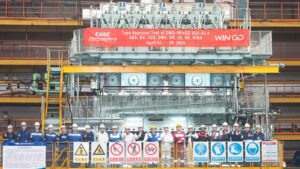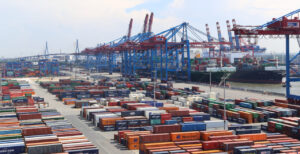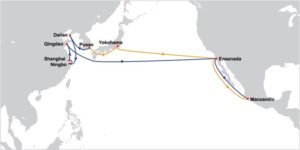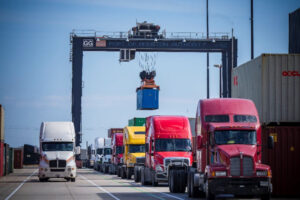The British Columbia Maritime Employers Association (BCMEA) and the International Longshore & Warehouse Union (ILWU) Canada have brought negotiations to a halt after four days.
Both parties now await further discussion with federal mediators, CNBC reported.
“The BCMEA remains ready to come back to the table at a moment’s notice, assuming that ILWU Canada is prepared to put forward a reasonable proposal. We are looking to reach a fair and balanced deal so ports can open, and goods can start flowing as soon as possible,” the BCMEA told CNBC.
Following ILWU Canada President Rob Ashton’s initiating announcement for strikes on 1 July, the BCMEA accused the union to have “entrenched their position” rather than working towards an equitable deal.
Contrarily, in its most recent statement, the ILWU Canada charged the BCMEA for having “deliberately sabotaged the progress that had been made [in contractual talks]” and thereby questioned the true intent of the BCMEA bargaining committee in negotiating a collective bargaining agreement.
The ILWU Canada described the government-legislated 7 per cent increase in minimum wage to counter the Canadian cost-of-living crisis as an amendment and sentiment of recognition that should be echoed in the ports sector.
“One would look at the transportation industry where employers have made their fair share of profits in which their employees were able to share in similar increases in line with what the government has already recognized as reasonable.”
READ: Canada West Coast port labourers call to strike in unanimous vote
Despite the deadlock, state politicians and industry figures have called for the reconvening of negotiations.
Seamus O’Regan, Canadian Labor Minister, urged both parties to return to the table.
Federal mediators continue to support BCMEA and ILWU in their negotiations.
— Seamus O'Regan Jr (@SeamusORegan) July 4, 2023
We encourage both parties to immediately return to the bargaining table and remain there until a deal is reached.
Collective bargaining is hard work but it's how the best, most resilient deals are made.
Additionally, Paul Brashire, Vice President of Drayage and Intermodal at ITS Logistics said: “With the Canadian holiday and July 4th holidays, the volume of containers moving are lighter than normal but now vessels are not being worked because of the strike.
“If this strike continues into the middle of next week, it will impact congestion in the coming weeks at Chicago and Detroit rail terminals because of the amount of containers that would have built up and eventually moved to those rail terminals,” Brashire continued.
READ: New bill seeks to limit union power in light of US West Coast strikes
Due to the ongoing strike, the western ports of Canada, which collectively handle approximately $225 billion worth of cargo annually, have been unable to service any ships since 30 June, leading to a significant trade backlog throughout the 29 ports in the region.
The labour strikes have particularly impacted the ports of Vancouver and Prince Rupert, which typically handle an average of $19 billion worth of containers per month and contribute to 20 per cent of US trade.
“Strike action at the Port of Vancouver and Prince Rupert could have a significant impact on transpacific cargo flows, with the ports typically accepting a combined average of 34 container vessels or 289,700 TEU capacity per month,” Senior Trade Analyst at VesselsValue, Charlotte Cook, reported to CNBC.
Cook further warned that such consequences could aggravate vessel transit and turnaround times and mounting congestion in and around the Port of Vancouver, disruptions of which may ultimately translate to late fees at the expense of the consumer.
These recent strikes come weeks after the Pacific Maritime Association (PMA) and the International Longshore and Warehouse Union (ILWU) announced a tentative agreement on a new six-year contract covering workers at all 29 West Coast ports in the US following a year-long contractual struggle.









